Says Mayor Cho Kwang-han of Namyangnju City
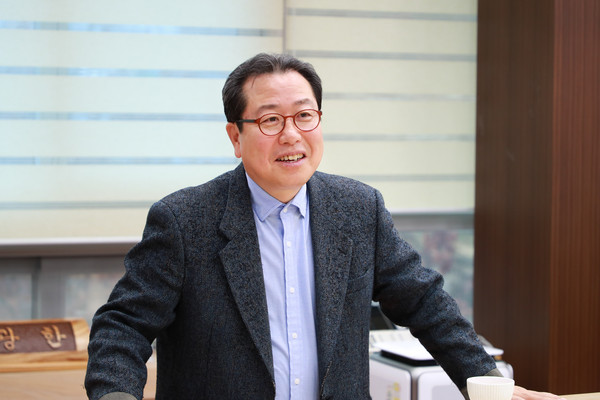
Cho Kwang-han, mayor of Namyangju City, Gyeonggi Province, says that he is fully committed to expanding the city’s transportation network. As a result, the metropolitan area express train network was extended to connect Namyangju to Incheon Songdo International City. Touching on the city’s another great achievement of the past year, Mayor Cho said in an interview with The Korea Post that the city’s third new city development plan was given a final go-ahead approval. The following are excerpts from the interview:
Question: First, could you discuss about the city’s major achievements in 2019?
Answer: Last year we put top priority on expanding the city’s transportation network, including railways, roads and buses. We worked hard to fulfill our objective. Our efforts paid off as the metropolitan GTX (Great Train eXpress)-B route passed the government’s preliminary feasibility study in August 2019. It is also worthy to note that the Wangsuk New City plan was given final go-ahead, enabling Namyangju to gather momentum for active development.
Construction is expected to begin in late 2022 and completed around 2027. The GTX-B line is set to connect Incheon Songdo International City to Cheongyangni(Seoul), Yeoeuido (Seoul), Seoul Station and Maseok, Namyangju. The project is estimated to cost 5.73 trillion won. Once the plan is completed, it will take 50 minutes in the 80-km route. At present, Namyangju City has no direct railroad link with Seoul.
Moreover, we are pushing for drastic improvements in bus and road services. S-BRT (Super-Bus Rapid Transit) and BRT (Bus Rapid Transit) systems are being pursued, along with expansion of local roads. Expectations are especially high for the S-BRT system. This is the concept of applying a subway system, such as the priority signal system, to buses. Intersections can be operated by buses without stopping and stops can collect fees in advance, like subways.
The inclusion of Wangsuk (1st & 2nd District) in the development of the new cities also bears much significance. The new city is designed to build roughly 66,000 new homes and create about 160,000 new jobs. Namyangju has already built two new cities. Namyangju is thus transforming into a major residential city in Korea. Within a decade, it will disperse some functions of Seoul and develop into a self-sufficiency city that solves its own jobs, housing, transportation and leisure. When the new city project is completed, Namyangju’s population is expected to reach 1 million from the present 700,000. Of note, many companies in Seoul are expected to relocate to the Wangsuk district as Pangyo Techno Valley is nearing saturation
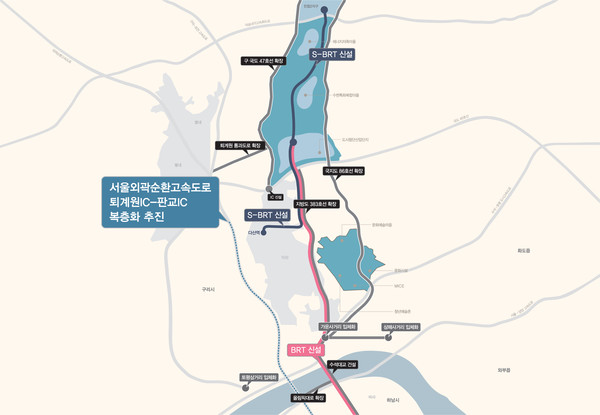
Q: Last year Namyangju received high points in the comprehensive evaluation of the local government system in Gyeonggi Province. Please say something about this.
A: Namyangju was named the best organization in the Gyeonggi Provincial General Assessment in 2019. Namyangju won 94.85 points in the first group of 10 cities and counties with the largest population. The comprehensive evaluation system of Gyeonggi-do is designed to demonstrate the city's capabilities in all areas of administration. The evaluation of 31 cities and counties in the province is conducted annually in the fields of major policies, and state-funded projects, dividing them into three groups according to the number of people.
Q: Are there any unsatisfactory performance results?
A: What is most regrettable is that the Gyeongchun and Bundang railroad lines have failed to be directly linked. The Gyeongchun Line now goes separately from “Chuncheon in Gangwon Province to Cheongyangni in Seoul" and the Bundang Line is "from Cheongyangni in Seoul to Suwon in Gyeonggi Province." Cheongyangni is a station that can connect the two lines. All you have to do is apply it technically. The Korea Railroad Corporation and university professors indicated there would be no problems. However, it is regrettable that the central government stands firm.
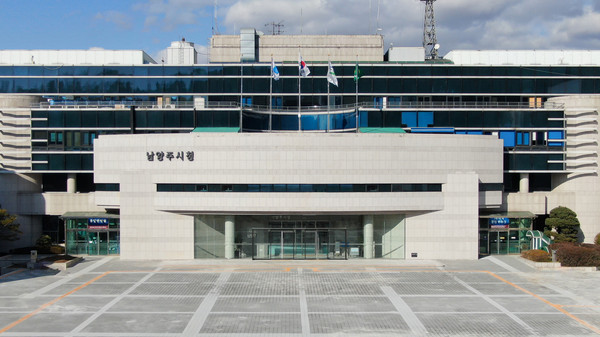
Q: What is your goal for 2020?
A: Extension of Subway Line 9 is considered key to the successful development of the Wangsuk New City. We had proposed to expand the line to Namyangju City in multiple times as No. 9 is set to be extended to Hanam City. The city of Namyangju renewed its proposal last year because it was excluded from the 2030 GTX Vision which was announced by the government in October last year. We will continue to demonstrate the merits of the project. We remain optimistic. There is a possibility that our idea would be accepted eventually.
Q: What will Namyangju City look like in 2020?
A: I think Namyangju will be a city of opportunity. Namyangju should become a city where each citizen can have dreams and hopes as an economic entity. By 2022, Namyangju's economic map will be completely different. The city’s opportunity will be generated from the Wangsuk New City, where about 160,000 jobs are expected to be created. From now on, we will make efforts to ensure that major corporations in the agriculture and life cluster industries, bio and medical industries, and precision chemicals are settled in Namyangju.
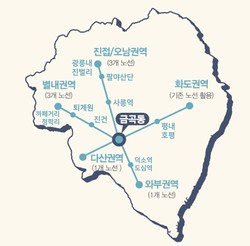
We will support start-ups in various fields and provide space, education and funding services. Backed up by these efforts, we will be able to increase jobs, productivity and income to make our city more competitive. In addition to the Polytechnic Technology Education Center, we will seek to attract convergence technology education centers that focus on new business areas in the future to build momentum for innovative growth led by young people.
Youth Startup Campus, the city’s first complex for young people to plan for the future, will be located in front of the Pyeongnae Hopyeong Station. Start-up Campus will serve as a “one stop” facility from incubating to sales, and create a real youth zone with a youth plaza and a healing park. The “human life center” will strengthen vocational education as the top priority for middle-aged people to support reemployment and help design successful lives.
Q: Could you talk about policies benefiting the weak?
A: We care about fair processes and the weak. None of us is fair until we are all fair. Some of the valleys and streams that have been unfairly exploited have been returned to the hearts of the citizens in decades. Our river gardening project impacted the administration of Gyeonggi Province last year, and this year will mark a whole new standard for changing the Republic of Korea with the value of fairness.
The newly introduced semi-public shuttle bus, "Thankyoubus," reflecting the difficulty of transportation between urban centers, will connect all parts of the city. To make it easier for young people, the Jinjeop Cultural House will be converted into a culture center for young people, while the Hwado station area will have a media library for young people. Small business owners who are driving the local economy will be treated well.
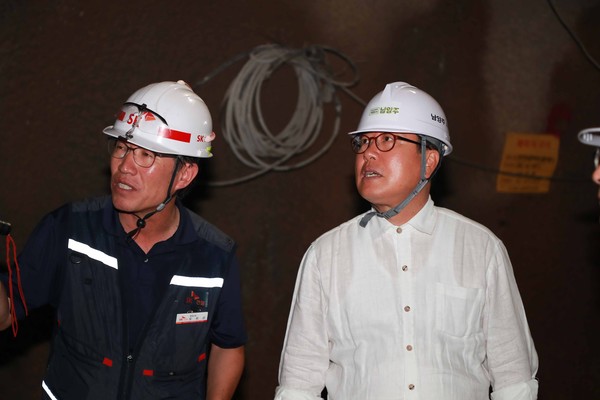
Question: What action will be taken to ensure comfortable life of citizens?
A: We will focus on making life easier for citizens. In order to reduce the severe parking shortages in residential areas and roads, smart parking systems will be introduced to revive the valley economy and public parking lots are planned to be expanded drastically. We will immediately clear the rambunctious illegal banners and introduce an anti-speculation system in the alleys to generate the pleasantly walking happiness around our neighborhoods. We will seek to enhance the quality of life by actively developing life SOC projects such as securing parking lots in Lake Park in Onam and building a community center on Hwado Island.
Q: It was reported that you had been on an overseas business trip during March 2019. You reportedly visited Sweden, Switzerland, Italy and Germany.
A: We have signed a MOU for friendship exchanges with a city of Sweden. We could benchmark an open daycare center in Sweden, an advanced welfare state. Instead of registering and attending one place like a daycare center in Korea, it is free to use a kind of public kids cafe installed in every stronghold. We will also seek to create an open daycare center in Namyangju.
We also visited the secretariat of the World Economic Forum in Davos, Switzerland, to explore ways to attract a world-class international humanities forum in Joan myeon, Namyangju. We are planning to host a tentatively named “Jeong Yak Yong Forum” that benchmarks the Davos Forum. In the beginning, high school students and college students will focus on discussing historical events and figures in the 1750s and 1850s. It will gradually be transformed to a national and global forum.
Namyangju City agreed with its Italian sister city, Salerno, to promote exchanges in youth, culture, sports, and agricultural fields. In Germany, FC Bayern Munich wants to gain access to Namyangju, so we met in person and discussed the operation of youth football training classes.
Q: Are you ready to adopt the designs of these foreign cities to development of Wangsuk New City? Would you like to present a blueprint for development of Wangsuk New City?
A: Wangsuk New City is ready to introduce new city designs and eco-friendly facilities from Sweden. We plan to create theme parks such as waterfront residential areas and botanical gardens using streams, while automatically collecting household waste and circulating resources. We will designate the area rich in history as a special zone for development. We are planning to create an orderly urban landscape by providing simple and differentiated buildings and transportation facilities.
One of the things I felt in Sweden was that no big businesses will be needed to become an eco-friendly city. By reducing the variety of things that can be reduced a little bit, we have reduced a significant amount of fossil fuel. However, even if a city becomes an eco-friendly city, it will be meaningless unless housing and jobs are available.
About Mayor Cho:
Born in 1958, Mayor Cho majored in Chinese language in Hankuk University of Foreign Studies, served as the Democratic Party propaganda chief, administration staff for President Kim Dae-jung in 1998, and secretary to President Roh Moo-hyun in Cheong Wa Dae, 2003. Also, he was an auditor of the Korea Gas Corporation, a visiting researcher at Georgetown University in the U.S., a professor of renewable energy at Kunjang University College, and vice chairman of the Strategy and Planning Committee of the Minjoo Party. Cho was elected mayor of Namyangju in 2018.

